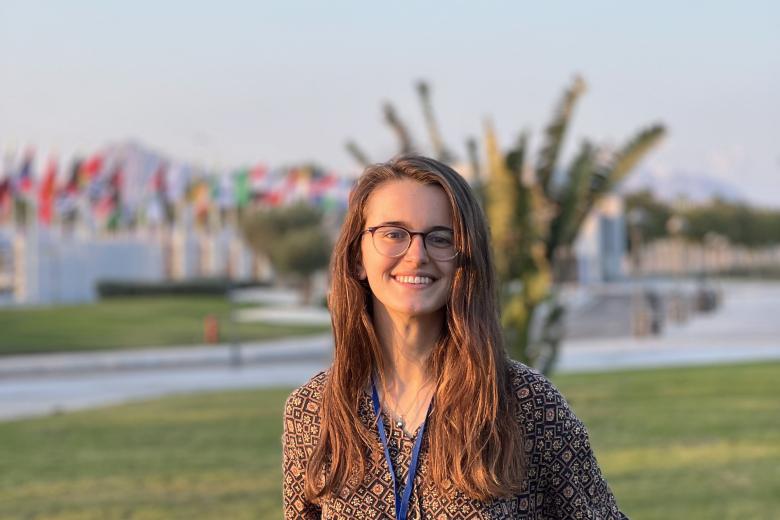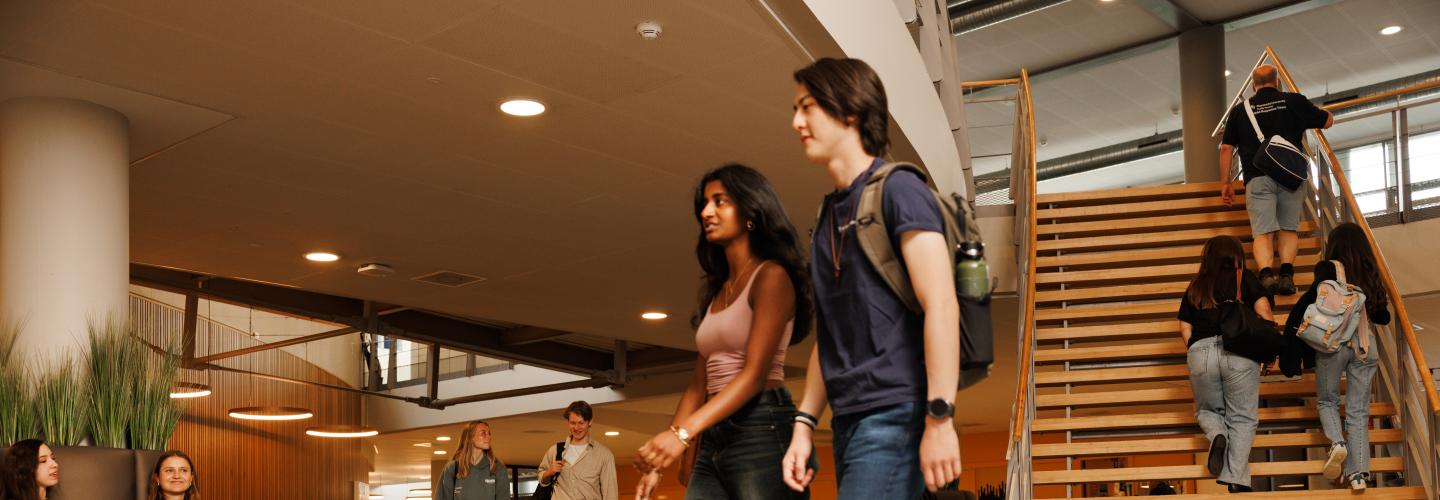Why this programme
Do you want to be able to unpack complex global health challenges? Are you driven to understand and address health inequities globally? Then Global Health could be the programme for you. This interdisciplinary programme provides you with the theoretical background, methodological tools and practical skills to navigate this challenging field. You’ll work within a diverse community of educators and peers from different contexts and backgrounds, giving you a rich and unique learning experience.
After you’ve graduated, you can pursue a career as a global health professional, drawing on your understanding of how local and global dynamics shape health outcomes. You can, for example, become a project leader, policymaker, researcher, consultant, health advocate or social entrepreneur. You can work for international institutions, local and national governmental agencies, non-governmental organisations (NGOs), academic institutions or industry. This programme can also enrich your practice as a health(care) professional.
This programme is for you if you want to:
- broaden your perspective, challenge your assumptions and rethink how we approach and engage with health problems in a globalised world;
- learn to think more analytically and critically about how we develop solutions to these health challenges;
- contribute to tackling health inequity and injustice in meaningful ways.
A broad and multidisciplinary approach to global health
We approach global health from a variety of perspectives, looking at the biological, social, historical, political, economic and environmental dimensions that contribute to existing and shifting health and disease patterns. In particular, we focus on how global and local dynamics interact and shape one another, and how they play out in different contexts. You explore the global health governance landscape, including the different actors involved, disentangling the various power dynamics and asymmetries at play. Through this critical examination of power, we also question the assumptions underlying particular health policies and actions. This allows us to reconceptualize existing approaches and envision better strategies to improve health.
Consortium for Global Health
Our programme is embedded within the Consortium for Global Health, which consists of multiple partner universities across the globe (https://gh-consortium.org/). Partners provide Global Health or Public Health master’s programmes, each from their own unique perspective. Through this consortium, you have access to an international community of Global Health experts and stakeholders working across the public sector, civil society and industry.
Opportunities to work with partner institutions across the world
Successful global health initiatives require intensive cross-border cooperation. This programme provides unique opportunities to work directly with partner universities across the world, preparing you for a career in Global Health. This includes partners in Bangladesh, Canada, Colombia, India, Japan, Norway, Sudan, Thailand and the United States of America - with students of each university coming from an even wider range of contexts.
You will work in diverse groups consisting of students from partner universities virtually (during the Foundations of Global Health I and II courses), and in person (during an annual two-week Learning Symposium), developing your collaborative and reflective skills. You also have the opportunity to follow a specialised elective track at one of our partner universities or here in Maastricht. If you follow an elective track in Maastricht, you are joined by students from our partner institutions.
Strengths of our faculty
Employability
Our active learning approach ensures that education simulates real-life tasks, preparing you to navigate the assignments you encounter in your professional life. You interact and engage with a range of peers, staff and professionals across the world, allowing you to expand your professional network. Additionally, targeted activities and events - e.g. a master career track, career day and alumni and networking session at the Learning Symposium - are designed to support your employability. A recent employability study indicates that the competences gained through the programme are well-aligned with those sought after by employers in the field.
Thesis
During the programme, you conduct thesis research under the close supervision of an academic supervisor. Thesis projects can be chosen from a list or self-organised and cover a diverse range of topics, methodological approaches and settings. For instance, you can use a qualitative or quantitative approach; you can do a desk-based study (e.g. literature review or policy analysis) or one that involves fieldwork; you can work within a placement organisation or more independently. Topics include infectious disease, inequities in health and access to care, planetary health, mental health, maternal health, health technology and health communication.
Advisory board
Our programme is embedded within the Consortium for Global Health. This consortium is guided by an international advisory board, consisting of leaders and experts from the field of global health, including representatives from industry, governmental and non-governmental organisations, industry and academia. Her Royal Highness Princess Margriet of the Netherlands is the honorary chair of the Advisory Board. The board convenes annually, rotating meeting locations between the partner institutions.
PREMIUM honours programme
Want to gain that extra edge by getting real-world experience during your studies? The PREMIUM honours programme will help you gain the experience and develop the skills employers are looking for. As part of a team of students and under the guidance of our academic staff, you will spend about three months working on a real-world assignment for a company, NGO or educational institution. You will also work on a personal development plan, receive intensive individual coaching and attend master classes and workshops. All of this will take about 250 hours, but it will give you a lifetime of benefits.
Student stories
Emma Goslin - health goes beyond medical research
Emma Goslin, a current student in the master’s Global Health, was drawn to the programme after witnessing health inequities first-hand during her medical placements.

